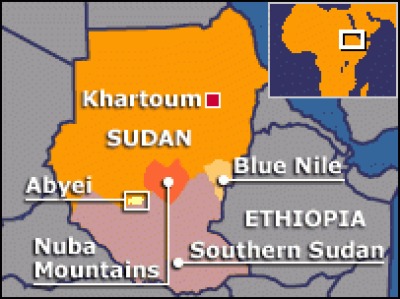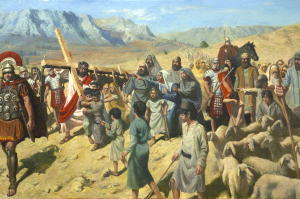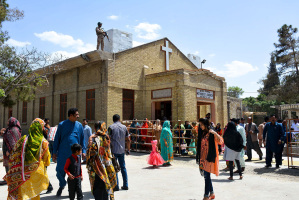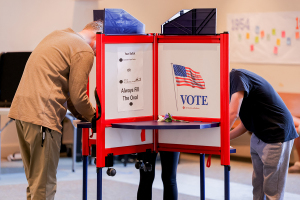Hope in Sudan
What is the war about?

Apart from an 11-year period from 1972-1983, Sudan has been at war continuously since independence in 1956.
In 1983, the government dominated by northern Arabs tried to impose Islamic Sharia law across Sudan, even in areas where the majority is not Muslim.
This exacerbated a rebellion that had begun in the south, which is inhabited by black African Christians and those who practise traditional religions, although they are divided into many different ethnic groups.
The rebel Sudan People's Liberation Army (SPLA) has never clearly stated whether it is fighting for southern autonomy within Sudan or outright independence.
What are the chances that the war will stop?
Hopes are higher than at any time since the war began in 1983.
The government and the southern rebels have agreed to set up a 39,000-strong army comprising fighters from both sides.
Last year, in the first breakthrough, they agreed that the south should be autonomous for six years, culminating in a referendum on the key issue of independence.
The SPLA accepted that Sharia could remain in the north.
Sudan has recently become an oil exporter and both sides have agreed on the key issue of how to share out the revenue, which mostly comes from the south.
What differences remain?
Several important questions have not yet been settled.
The government wants to impose Sharia in the capital, Khartoum, while the rebels say the national capital should be exempt, even though it is in the north.
The status of three central areas: Abyei, Blue Nile State and the Nuba mountains is in dispute.
The SPLA say they should be part of the autonomous south and vote on independence but the government disagrees.
Under the current agreements, SPLA leader John Garang is due to become vice president.
But the incumbent, Ali Osman Taha, is unlikely to be pleased at the prospect of losing his job.
He is the head of the government delegation at the current talks and so is well placed to look after his interests.
Is the SPLA the only opposition?
No, there is also fighting in the western Darfur province, which has led some 40,000 people to flee their homes.
The government, however, says the Darfur rebels are linked to the SPLA.
A senior Islamist politician from the north, Hassan al-Turabi, was last week freed from prison.
This was seen as paving the way for a peace deal with the SPLA.
He was arrested two years ago after singing a deal with the rebels.
Why is the United States getting involved?
President George W Bush has been under pressure from both flanks to help bring peace to Sudan.
Human rights campaigners are worried about continued reports of slavery, while right-wing Christians, which have considerable influence in his Republican Party, want him to end what they see as the persecution of Christians by Muslims.
He appointed John Danforth as his special envoy to Sudan in 2001.
The US is certainly putting pressure on both sides to stop fighting and the diplomatic muscle of the only superpower could prove decisive.
Mr Powell is holding out the carrot that the US will lift sanctions on Sudan if the war ends.
The US is also keeping a close eye on Sudan because of fears that terror groups may operate there.
Osama Bin Laden lived in Khartoum in the early 1990s and helped finance several major public works.




























